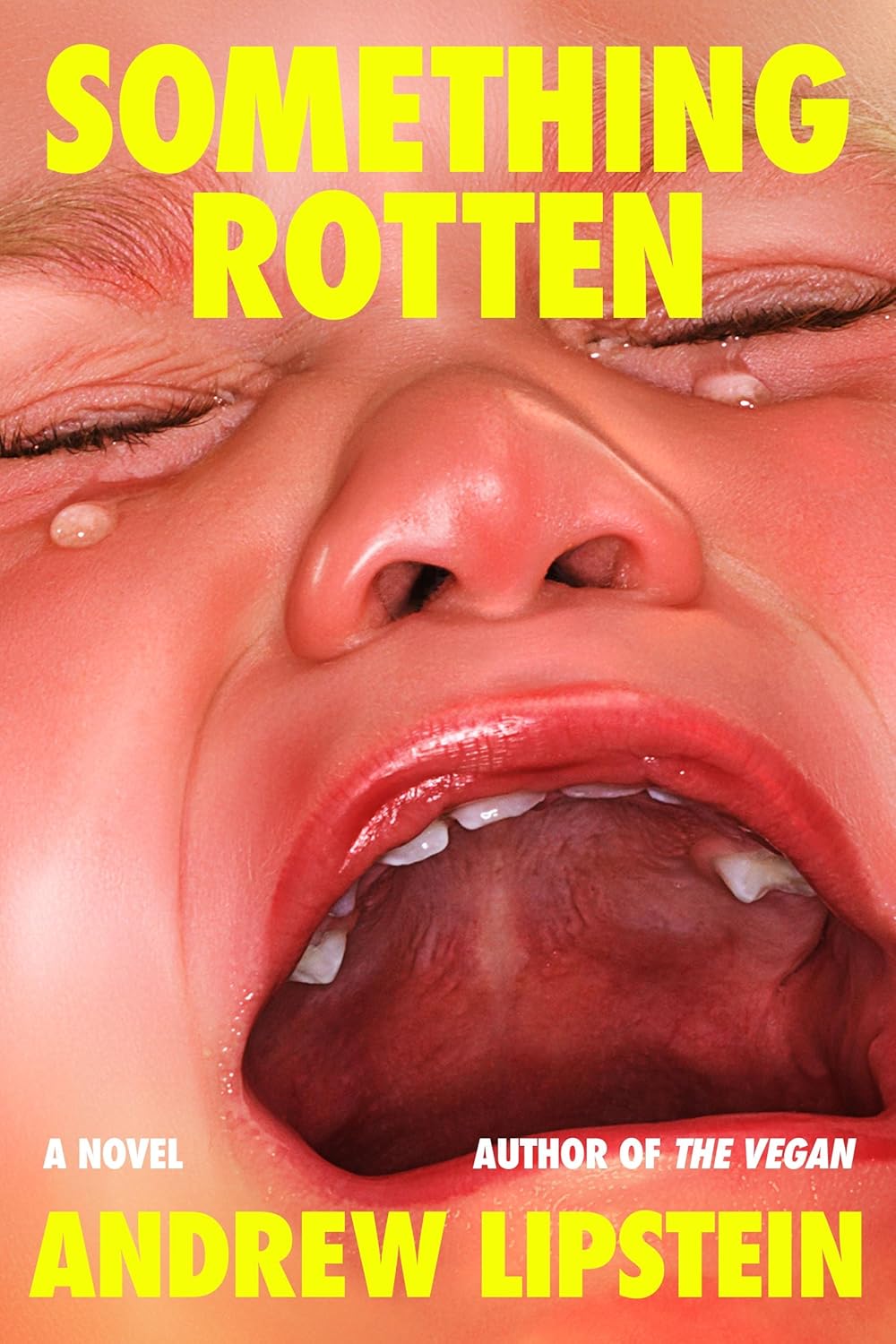Something Rotten: A Novel
- By Andrew Lipstein
- Farrar, Straus and Giroux
- 352 pp.
- Reviewed by Chris Rutledge
- January 16, 2025
Beleaguered thirtysomethings seek solace in Scandinavia.

Andrew Lipstein’s Something Rotten is a humorous, well-paced portrait of a marriage and of lives in transition, with characters navigating new roles as parents and expats. Throughout the novel, we see people experiencing the general confusion of one’s 30s — struggling to come to terms with who they’ve been, while simultaneously working to identify who they’ll become.
Protagonists Reuben and Cecilie — whose names appear atop alternating chapters — are driven from Manhattan back to her native Copenhagen on the heels of him being canceled professionally. He lost his job at NPR after accidentally performing a sexual act on camera (he mistakenly thought he’d closed Zoom) and is now, begrudgingly, a stay-at-home dad. She’s stalled in her career at the New York Times and sees no problem taking a little respite to find herself.
Cultural insularity plays a large role in the narrative. After Reuben and Cecilie arrive in Denmark with their toddler son, Arne, each is met with resentment from her circle of friends who never left. Reuben tries to include himself among the guys, but when he’s ridiculed for his ineffectual Danish — “He found it too embarrassing to give it his all, given that he’d sound stupid regardless” — his incompetence is emasculating. Not a look a man wants to foster when surrounded by other dudes.
There’s also a persistent, not-so-subtle condemnation of those who dare to leave the community. Cecilie’s former lover, Jonas, addresses her accusingly, “When you left me, and Denmark, and everyone else, you broke my heart, and it has never healed.” It’s the gratuitous addition of “everyone else” that cuts deepest. This isn’t just a broken heart that she’s caused; apparently, it’s a betrayal of her homeland.
And it’s a guilt that Cecilie (and, by extension, Reuben) carries all through the story. Even as she grows exasperated by her doting mother and her disapproving friends, she envisions what life would be like if she moved “back home” for good. Would she and Reuben raise Arne as a Dane? If they did, how would his world (and theirs) differ from their stereotypical New York Yuppie one?
Also central to the book are the themes of modern masculinity and the roles men are expected to play. Jonas, believed to be battling a fatal brain aneurysm, refuses to allow anyone other than his friend Mikkel — presented as the alpha to his beta — to assist him through it by acting as “Jonas’s spokesperson, the keeper of knowledge.”
Mikkel soon assumes a Svengali-like role over Reuben, as well. It is he who refuses to share a cigarette with Reuben, providing one only “if you say it in Danish.” He later goads Reuben into an ill-considered tattoo. Ironically, while Mikkel comes across as the stern instructor of the group, he ends up being the weakest among them.
For his part, Reuben grapples with the dual roles of father and failed provider. He wants to assert his masculinity but (like many thirtysomethings) lacks the requisite role model to show him how. His own father left when he was young, and he’s spent his life mostly surrounded by women and their expectations. “I do feel like a man,” he moans at one point. “It’s just that sometimes I feel like I have to apologize for it.”
Lipstein nods to these conflicting gender expectations and to the unfairness of cancel culture in his depiction of Reuben’s plight. Yes, he inadvertently performed a sex act on camera (during office hours, no less), but while the fallout dogs him from job interview to job interview, Cecilie — on whom the act was performed — pays no similar price. And the inequity only follows them to Denmark (recall the book’s title), where Cecilie enjoys the security of a friend group, a native language, and an ex-lover. It’s no wonder Reuben’s already-fragile ego takes another hit.
And another. And another.
Still, while Lipstein uses his pen to expose his characters’ weaknesses, he never loses empathy for them. His ability to balance skepticism with concern allows him to get to the “truth” about some of society’s ills without beating it to death. Yes, Reuben has been treated unfairly, but while he may dwell on it, the author, thankfully, does not.
If there’s a shortcoming here, it’s that the women come across almost as ciphers. Although the move is back to Cecilie’s country, the emotional journey is Reuben’s. Each of the men in the couple’s circle is given distinct personalities and traits, whereas the women feel interchangeable. Nonetheless, Something Rotten is a solid entry into that most modern of genres, the “nearing 40 but still not an adult” tale. Page after page, Lipstein does a fine job of reminding us that where we came from can’t help but impact where we end up.
Chris Rutledge is a husband, father, writer, nonprofit professional, and community member living in Silver Spring, MD. Besides the Independent, his work has appeared in Kirkus Reviews, American Book Review, and countless intemperate Facebook posts, which will surely get him into trouble one day.

